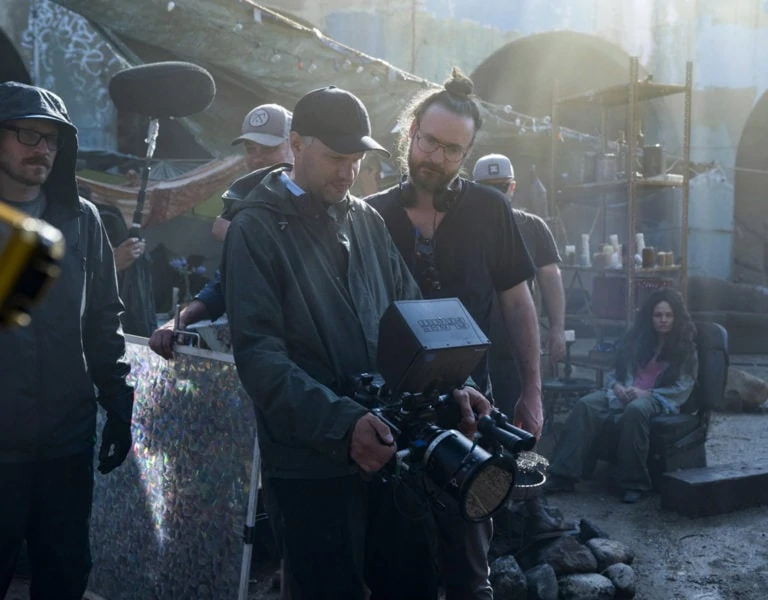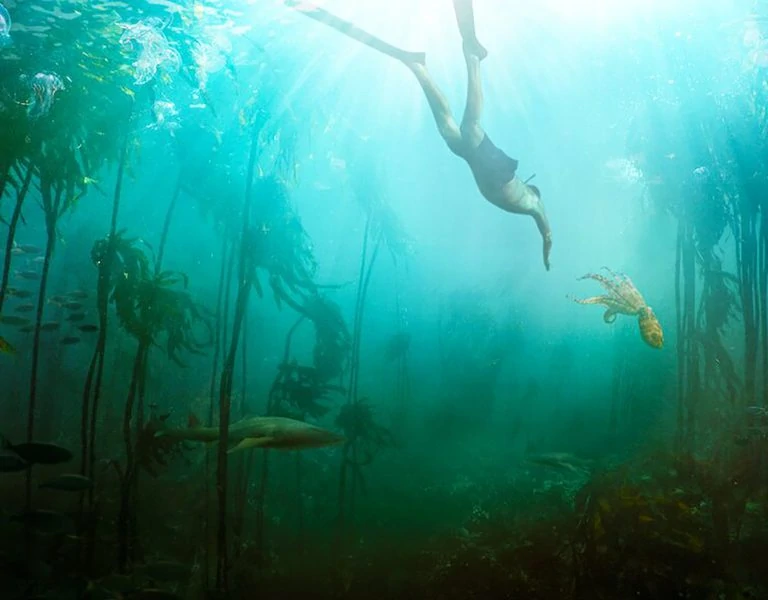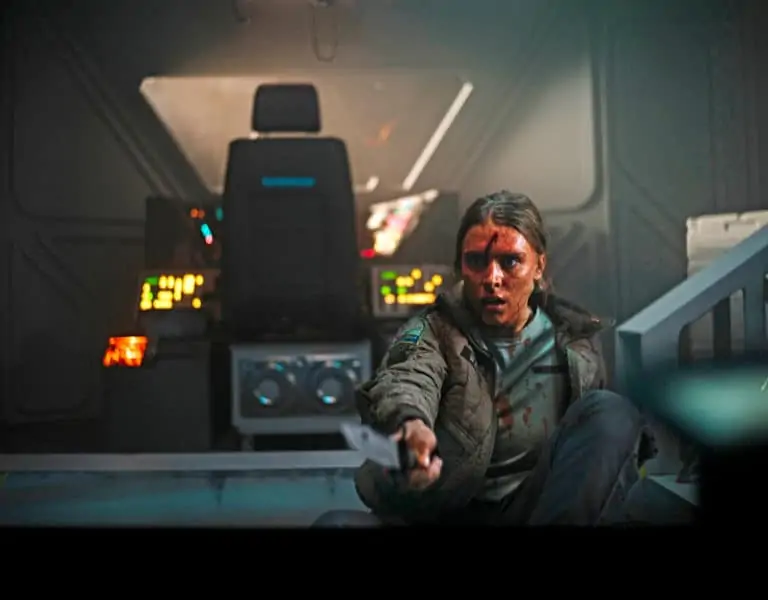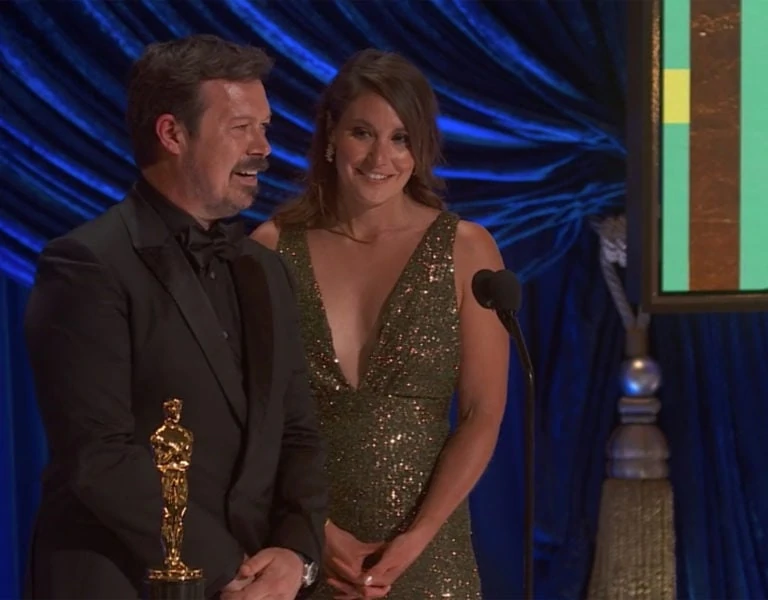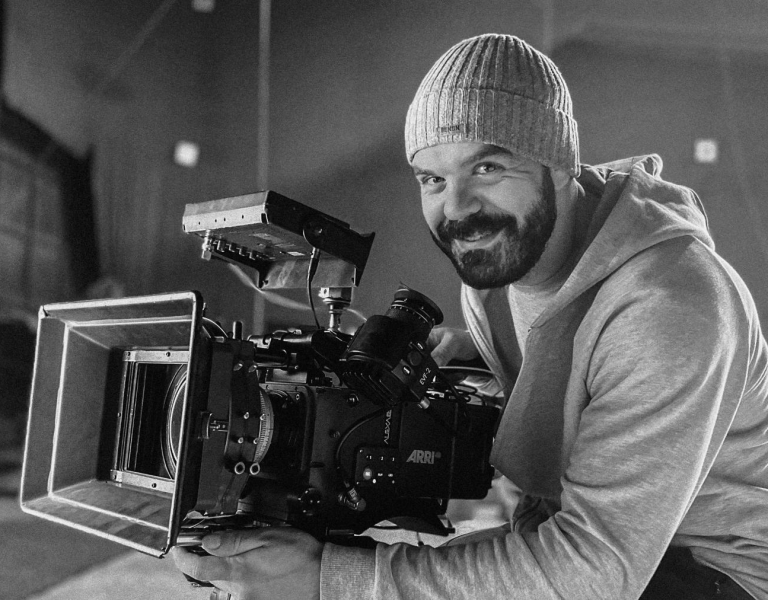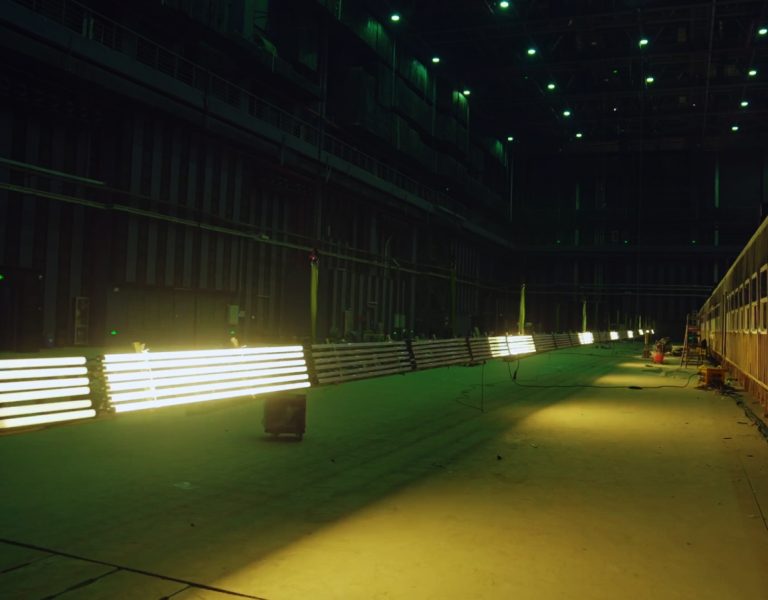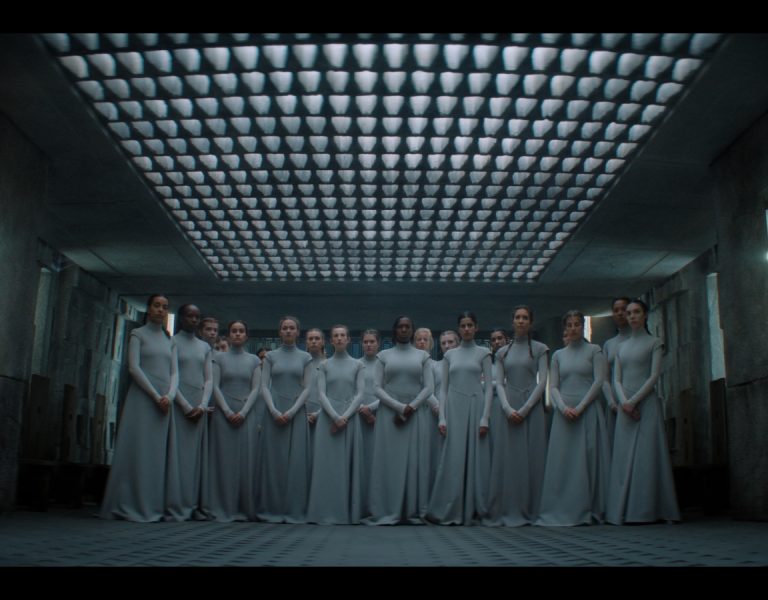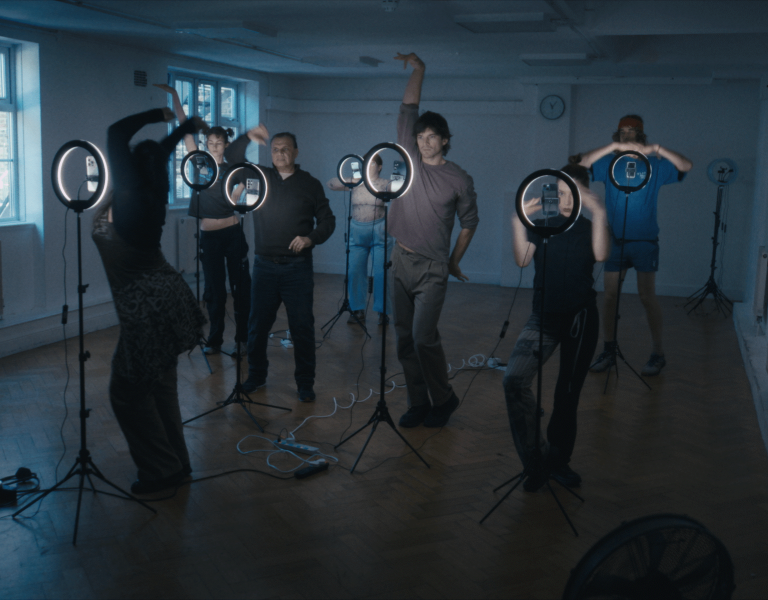Gangsters’ paradise
Cinematographer Bebe Dierken was entrusted with setting the look for the exciting prequel series to the seminal gangster film Sexy Beast.
A prequel series to Jonathan Glazer’s lively debut film, Sexy Beast follows Gary ‘Gal’ Dove and Don Logan in their younger years. Brought to life by Ray Winstone in Glazer’s feature, Gal is now played by James McArdle, while Emun Elliott takes over from Ben Kingsley as Don. One of the show’s cinematographers, Bebe Dierken, reflects on her collaboration with showrunner Michael Caleo to bring the Sexy Beast to the small screen with Paramount +.

How did you get involved with Sexy Beast and what appealed to you about the story?
I love the original so it was not a hard decision to say yes to it, but it was a bit of a zigzag tour until I finally started filming it.
I got a call before COVID to meet the producers and the director at the Langham Hotel in London for an interview for an upcoming series called Sexy Beast. On my way up to the meeting, I met a funny hotel guest in the lift. We had a laugh and I continued on to meet the producers. To my surprise, I met the man from the lift again, whom I learned was showrunner Michael Caleo. We had a connection straight away.
But due to COVID, the series got postponed to a unknown date and when it finally started again two years later, the director I met was not attached to the job anymore and the new director brought his own DP to the job. So, I was out.
During the first days of shooting, I got a call from the producers (whom I had met two years prior) as there were some creative differences with the director in place. It was decided that Michael Caleo would take over the directing of the first three episodes and as a result of that, I got invited again to join the nice man I had met in the lift a few years earlier.
I am not going to lie that getting offered to introduce a show of this scale as a woman is still quite rare. Trusting me with the look of the show was a great compliment from Michael Caleo, the producers and Paramount +.

How much does the show’s look and mood reflect that of the 2000 film – or did you want to go down a different route?
The story of Sexy Beast is such a timeless classic and I never wanted to compete with that. The approach from the beginning was not to copy what had been so brilliantly done before but take some inspiration from it. I am a big admirer of Jonathan Glazer’s movies, and I took inspiration generally from his movies. I love the motorbike scene in Under the Skin which I tried to pay homage too. So, I leaned to the colours of that time, and some of the iconic framing from his movies, not explicitly Sexy Beast.
Take us back to prep – how long did you have and what did it involve? What research did you do?
Because of the short notice and me stepping in, I had one-and-a-half weeks to get ready which is an incredible short time, but Michael Caleo was confident I would get myself ready. We concentrated on the first two weeks and then went from week to week. As this job had been offered to me before, I knew the scripts and I had an moodboard and some research already done before COVID – I just needed to dive in again. Nevertheless, I had asked the producers to bring my gaffer John Kevin Gibb to the show, whom I have worked with on Origin, Troy and Doctor Jekyll. As prep time was short it was incredible important for me to have a creative collaborator with an established shorthand to support me.

Were there any other creative references that you drew on for the show’s look?
I really liked the colour palette of Her, shot by Hoyte Van Hoytema ASC FSF NSC, for the Sexy Beast series. It had a period feel to it with the dirty warm highlights, the warm skin tones and the olive green. Sorrentino is always a big influence too.
I tried to dedicate colours to the different worlds. Dull outside, bold colours for the nightlife, red for Teddy and his bar; uncomfortable green for Don and Cecilia; warm for the parents’ house and pub; Gal’s apartment with some modernism and a bit more colour than parents’ house, but always some dullness in mind.
As the sun is a character in the original, I wanted the sun and colours to shine in Spain, to create Gal’s desire and love for Spain. Therefore, I tried not to feature it in the first three episodes. Needless to say the sun was shining beautifully in Liverpool when you didn’t need it. We tried to dull it down in post.
I wanted muddy skies during the day and then a more glamorous and colourful nightlife to escape the dullness of the day. This supported the drive of the characters of a tempting criminal nightlife and in episode four (shot by Mattias Nyberg BSC) the love and the warmth of the sun in Spain.
I wanted us to discover with the characters the temptation of becoming criminals, why they were choosing this life, and attending parties which all of us would like to go to too but never got invited to.
Can you run us briefly through the locations? How involved were you in scouting?
Some of the locations were already decided on but quite a few got changed when I got on board. Locations are incredibly important for me, as is the time I can spend with the director and later, the technical crew there. A location can give you so many ideas, so I like to be part of the process.

What camera and lenses did you choose for the show and why? What testing did you do?
We shot on the Sony Venice and I decided to use Atlas Orions as they are strong anamorphics with some imperfections which for me reflected the timeframe and the characters.
Unfortunately, there was no time for testing, but I had quite a few conversations before we started shooting with DIT Al Marshall at Mission Digital and grader Ross Baker at Molinare, who were both absolutely wonderful. Especially in the first weeks Al and I would grade on set, finding a look and finalising it with Ross in the grade later.
What were the main cinematographic challenges posed by the shoot?
The biggest challenge was time – on all locations but especially on the bigger sets, like the nightclub were Gal meets DeeDee for the first time, the rape, Teddy’s Red Party and the big manor houses.
What was your approach to camera movement, framing and composition?
We went with the scenes and the story, being in control or out of control, moving with them if we wanted to stay with them or standing back with longer lenses when observed. I didn’t want to be too strict and tried to embrace the moment: I like a certain amount of imperfection, in the framing too.
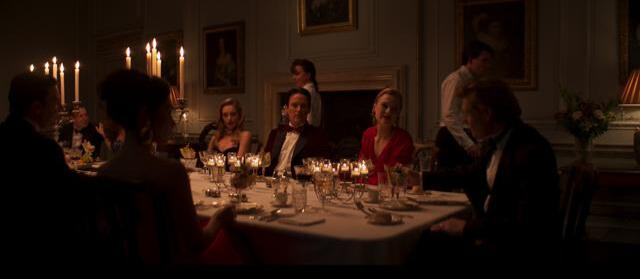
What was your general approach to lighting?
Being flexible and fast. Integrating or hiding as many lights as possible to have flexibility in turning around or seeing the whole place. So, we used a lot of LED lights to play with colour temperature and colour.
I tried to give the different sets a colour. Dan and Cecilia: a timeless place with as little daylight as possible, with an uncomfortable green. Teddy: red party, red bar. DeeDee’s home: beautiful, natural, different to the porn studio. The porn studio had red too as it stands for love, danger, blood. Warm period lighting at Gal’s parents, homey but a bit old fashioned. Marie in UV-Blacklight. I always wanted the nights or these places without daylight to stand out like a refuge from the dullness outside.
What was the trickiest scene or location to light?
The Red Plastic Party. I really struggled with that location as it was originally painted in magnolia, which was not what I had envisioned for a Teddy Bass party. Michael Caleo and I made a moodboard for it which had a lot of red involved – actually, only red was involved .
The set designers Garreth Stover and Suzie Cullen were allowed by the location owners to paint the whole three floors in red. However, there was not enough time to turn it back into its original colour, so we thought we had to change that idea, first thinking about shiny fabric but in the end we decided on red plastic which looked nice.
We left some gaps on the upper floor for lighting, backlit some of the plastic and used a long rod light at the top for some fill. It needed to be a special place and a little bit out-of-this-world for Gal and Don wanting to be part of that lifestyle.
The amount of red light without creating ‘tomatogate’ in the actors’ faces was a challenge. Red is always a bit tricky but I really enjoyed that set.

Can you tell us about the grade?
The grade was at Molinare in London and the grader was Ross Baker. It was a pleasure to work with Ross on the episodes. Nothing was too much of a burden to try. I think we both worked really nicely together, and I hope we can work together soon again. Also, I like grading in HDR because it gives me so much latitude to play with.
What do you think made the collaboration between you and Michael Caleo so successful?
We both have a love for storytelling. He with the words and the actors and myself with camera language and lighting. He also is a very funny man, so I laughed a lot with him.
I like a director who challenges me and pushes me to rethink. In my past career as a focus puller, I was so lucky to work with so many strong, visionary personalities. I learned so much from all of them because they challenged me. Michael Caleo comes with all these qualities as a director too. He’s also a great showrunner, writer, producer and an altogether beautiful human being who never made me feel I had to prove my position and also valued my bad ideas.
What are you most proud of from your work on Sexy Beast?
This job really pushed me to my limits as there was near to no prep time. So, I am proud that I was able to realise some of my visions for it.
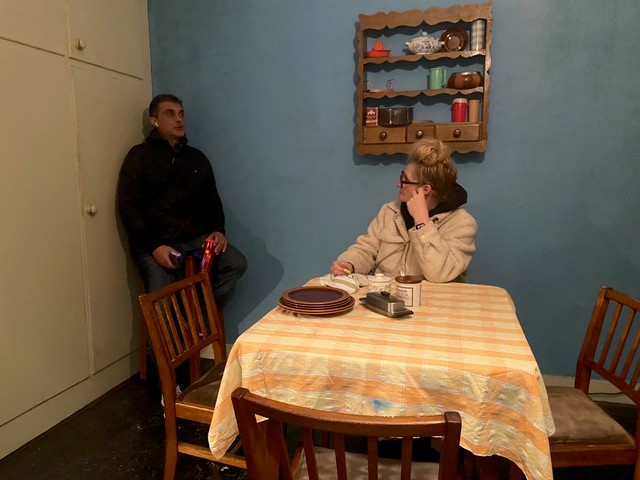
Are there any lessons learned from this shoot that you’ll take onto your next project?
A lot of political ones!
Are there any crew members not yet mentioned that you’d like to highlight?
As always, thank you to the whole crew and specially to the technical crew.
A special thank you to: John Kevin Gibb (gaffer) and best boy Simon Dawson; Al Marshall ( DIT) and team; Dan Nightingale ACO (operator); Arron Monkman (focus) and his camera team; Damian Roberts (key grip) and his team; and Michael Caleo who worked for so many years to pull off this show and trusting me with it.
